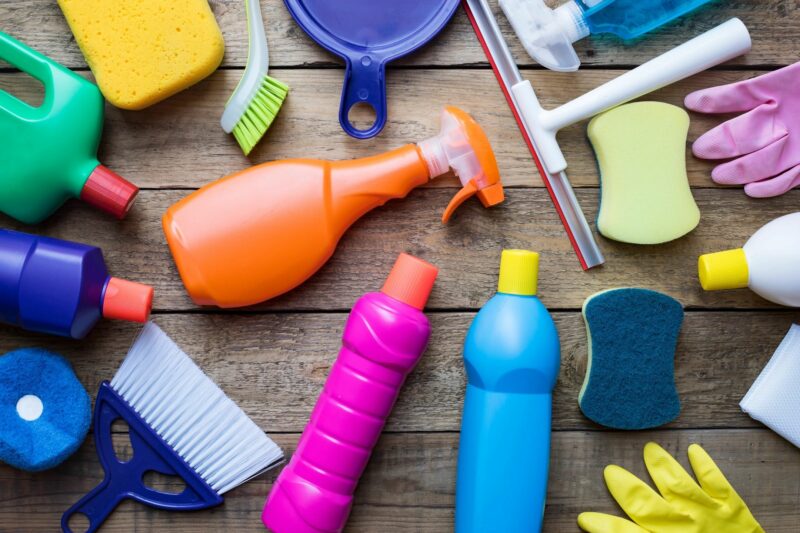The Dark Side of Anti-bacterial Cleaners

Anti-bacterial sounds good right? Bacteria is bad stuff that makes us sick and makes our homes smell bad right? Well in this case, “the juice might not be worth the squeeze.”
Not all bacteria are bad.
First of all, not all bacteria are bad (think about good and bad bacteria in your body), so while there may be bacteria in your home, not all of it is harmful to you or your family. One study found that the most dangerous bacteria in your home are found in refrigerators and toilets and even then, this bacteria came from the human body. These tiny little roommates may only be dangerous for individuals based on age or state of your immune system.
Anti-bacterial cleaners may be dangerous.
While some little microbes may make you sick, the active ingredients in antibacterial cleaners have been linked to serious health concerns including organ damage, behavioral issues, and impair the body’s ability to fight off common infections. The substances that make a product anti-bacterial are actually herbicides, pesticides, and fungicides! Read more about some dangers of cleaning products here.
Antibacterial cleaners may not be better than soap.
Surprisingly, anti-bacterial soaps have not been proven any more effective than regular soap in preventing infection among average people (according to the CDC). PLUS, regular soap is less expensive than antibacterial soap, and regular soap won’t kill the good bacteria on your skin.
So when are anti-bacterial cleaners good?
There are some instances when anti-bacterial soap is worth the risks. For example, if someone in the house is seriously ill or has low immunity then getting rid of germs is important.
So what should you use?
Regular soap and hot water with a mix of vinegar or alcohol is a great multi-purpose cleaner. Learn a good recipe here.
